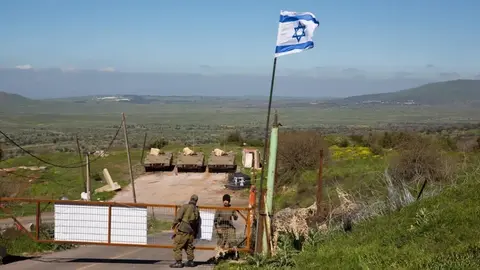Israel redoubles its attacks on UNRWA

Such a violent epithet is the Israeli government's reaction to the publication of the long-awaited report on the United Nations Relief and Works Agency for Palestine Refugees in the Near East (UNRWA). The document had been commissioned by UN Secretary-General António Guterres of Portugal to an independent commission as soon as Israel accused twelve UNRWA employees of direct involvement in the massacre of 7 October 2023, which killed more than 1,200 Jews, wounded 3,000 and took 250 hostages in the biggest tragedy inflicted on the Jewish people in a single day since World War II.
Israel maintains that UNRWA employs "more than 400 terrorists" out of a total of 30,000 workers in the agency's service, which is why, in the wake of the bloody operation carried out by Hamas, it urged all donor countries to cancel their contributions to the agency, an instruction that was followed by several of them, including the United States and some members of the European Union. Not so Spain, which even increased its contribution on the orders of Prime Minister Pedro Sánchez.
But the report by the independent commission, chaired by the former French Foreign Minister Catherine Colonna, concludes that "Israel has not provided credible proof that the UNRWA employees it accuses are indeed terrorists".
Colonna and her staff acknowledge that the agency does indeed have "problems of political neutrality", a characteristic that the United Nations requires of UNRWA and all its agencies, but it is a long way from concluding that it harbours terrorist elements, especially if the accusations suggest that such criminals would carry out their activities, if not with UNRWA's own knowledge, then at least with its conscious blindness.
The report goes on to clarify the problems of neutrality alluded to and states that there are indeed "instances of personnel employed [in the agency] publicly expressing political views" unfavourable to the behaviour of Israel and its Defence Forces. It also acknowledges that some of its employees, who teach in schools and universities, use books whose texts it describes as "problematic" - Israel accuses such content of inciting hatred - as well as trade unionists who are often reluctant to accept UNRWA's strict discipline, which distorts, according to the report, the humanitarian work of the agency as a whole.
Catherine Colonna does not close the door on Israel providing the evidence to confirm her accusations. She acknowledges that there may still be much room for improvement in the functioning of an agency that has been carrying out its mission for 75 years. Before concluding by urging the international community to support the agency so that it can successfully carry out its mission and meet the enormous challenges.
The report justifies its conclusions by its finding that "UNRWA is a crucial organisation in providing essential humanitarian assistance and social services, especially health and education, to Palestinian refugees", not only in Gaza, but also in Jordan, Lebanon, Syria and the West Bank.
The report, whose findings will lead to an "action plan" promoted by UN Secretary-General António Guterres, is the corollary of intense investigative activity since Israel launched its serious allegations against UNRWA. UNRWA director Philippe Lazzarini appeared before the Security Council, also to respond to questions and doubts from the countries that now make up the Council, including the five permanent members: The United States, Russia, China, the United Kingdom and France. Lazzarini pointed out in his appearance the risk of "dismantling" the agency, created by the UN General Assembly in 1949, initially for a period of six months.
Three quarters of a century have passed and, as the original resolution stated, the agency continues to "await a just and definitive solution" to the so-called Palestinian problem. In the meantime, UNRWA continues to provide its services as best it can to the 5.9 million Palestinian refugees in the territories, through a thousand facilities and through the work of its 30,000 employees, 99.9% of whom have refugee status.



